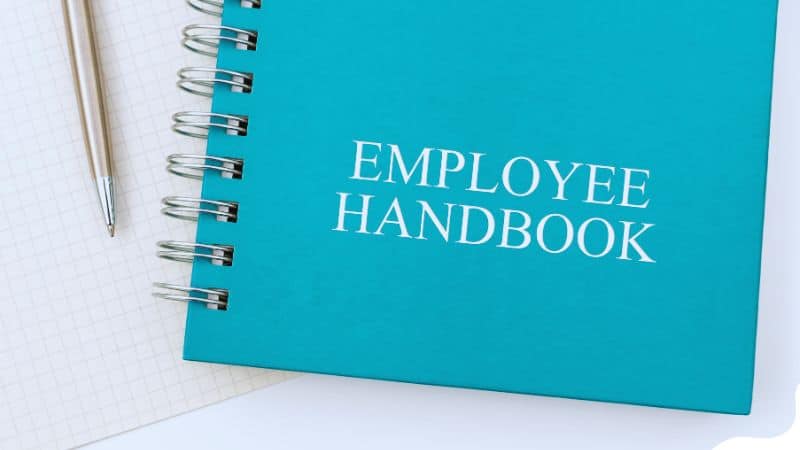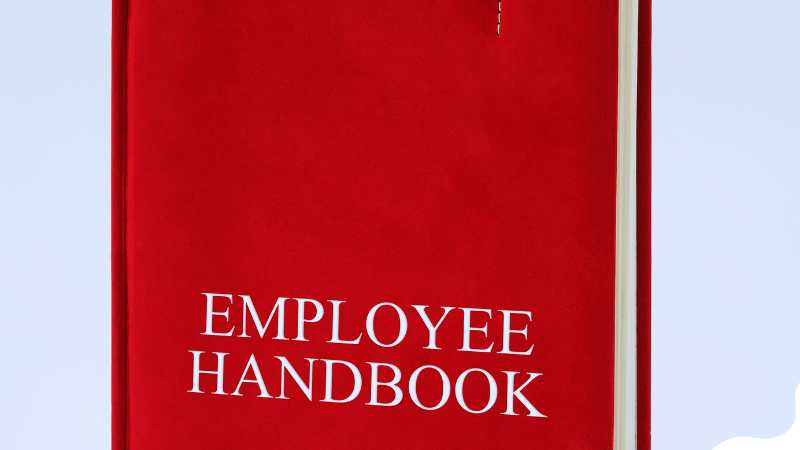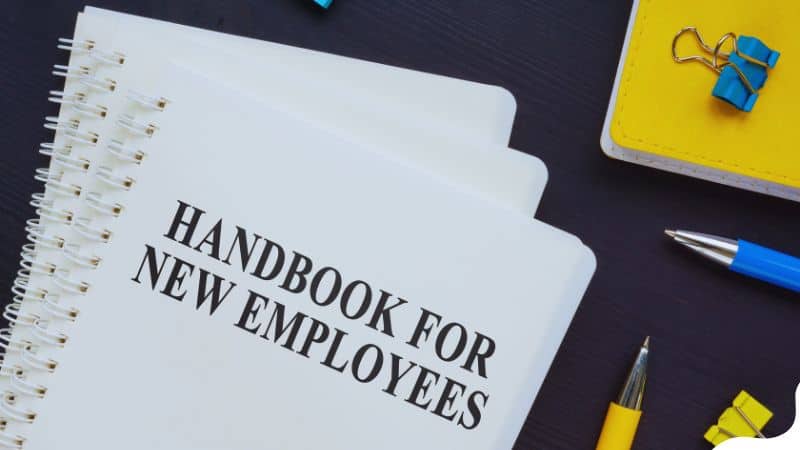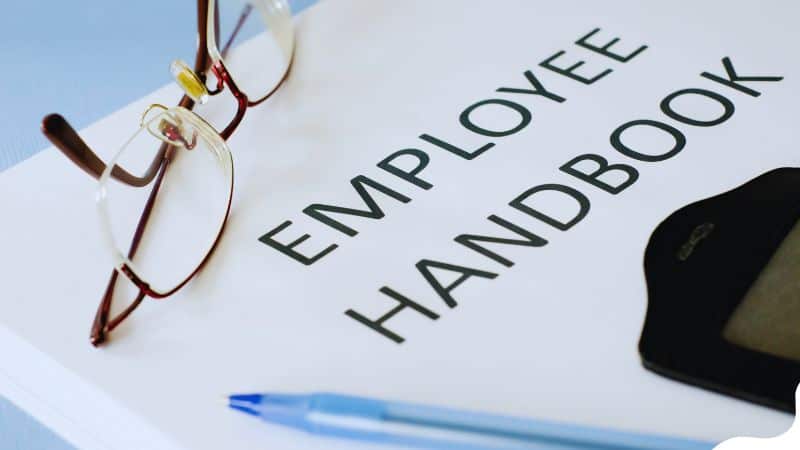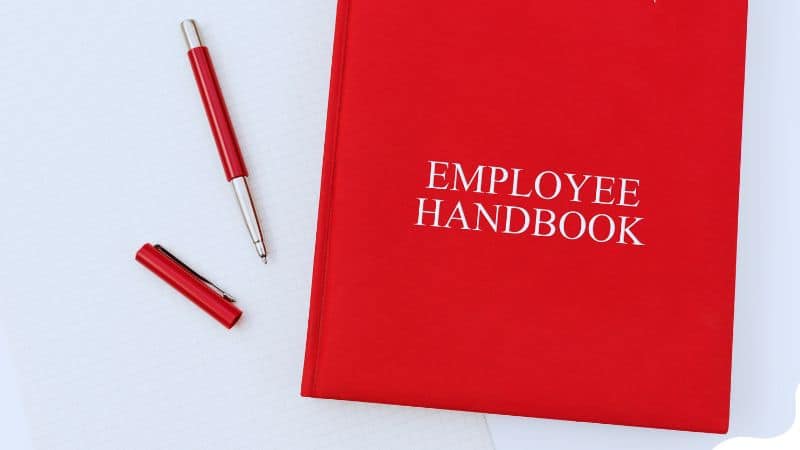When companies are not clear about data privacy and accountability, they risk violating laws like the Data Privacy Act. This can lead to serious legal consequences, including hefty fines, reputational damage, and potential lawsuits. A lack of clarity leaves employees confused about their responsibilities, increasing the likelihood of data breaches or mishandling of sensitive information.
Without clear policies, employees may unintentionally expose personal or company data, putting customers, employees, and the business at risk. This can lead to identity theft, financial losses, or leaks of confidential business information.
Clear guidelines on data privacy and accountability protect both the company and its employees by ensuring compliance with laws, reducing risks of breaches, and building trust with clients and stakeholders. It’s crucial for safeguarding the company’s operations and reputation.
Data Privacy and Confidentiality
Data privacy and confidentiality in the employee handbook refer to the protection and proper handling of sensitive information. Data privacy ensures that personal or company-related data is collected, stored, and shared securely and lawfully. Confidentiality means safeguarding sensitive business and employee information from unauthorized access or disclosure.
These concepts are crucial because they protect both the company and its employees from breaches, identity theft, or misuse of information. Including these guidelines in the handbook sets clear expectations for employees on how to handle private data responsibly.
By emphasizing data privacy and confidentiality, companies create a culture of trust and compliance, ensuring legal protection and preserving the integrity of their operations. It reminds employees of their duty to safeguard sensitive information in their daily tasks.
Step 1: Explain the Handling of Personal Information
Start by explaining how the company collects, uses, and protects employee personal information. Employees need to know that their data is handled with care and in compliance with privacy laws, such as the Philippine Data Privacy Act.
Example:
“[Company Name] is committed to protecting the personal information of our employees. We collect only the data necessary for employment purposes, such as contact information, employment history, and performance records. This data is stored securely and is only accessible to authorized personnel. We comply with the Philippine Data Privacy Act and take all necessary measures to protect your information from unauthorized access, use, or disclosure.”
Step 2: Outline the Confidentiality Agreements
Next, detail any confidentiality agreements that employees must sign as part of their employment. These agreements typically cover the protection of company trade secrets, client information, and any other sensitive data.
Example:
“All employees are required to sign a confidentiality agreement upon joining [Company Name]. This agreement ensures that you understand the importance of protecting company information, including trade secrets, client data, and proprietary information. Disclosing or using this information for personal gain or sharing it with unauthorized parties is strictly prohibited and may result in disciplinary action, including termination.”
Step 3: Describe the Proper Handling of Company Information
This section should explain the protocols for handling company information, including digital and physical records. Make sure to include guidelines for accessing, storing, and sharing information securely.
Example:
“Employees must handle company information with the utmost care. Digital files should be stored in secure, password-protected systems, and physical documents should be kept in locked cabinets when not in use. When sharing information internally, use secure communication channels, and ensure that only authorized individuals have access. Avoid discussing sensitive company information in public or unsecured environments.”
Step 4: Address Data Breach Protocols
Explain what employees should do in the event of a data breach or if they suspect that sensitive information has been compromised. This section should include steps for reporting the breach and the company’s response plan.
Example:
“In the event of a data breach or if you suspect that sensitive information has been compromised, immediately report the incident to your supervisor or the IT department. [Company Name] has a data breach response plan in place to contain the breach, assess the impact, and notify affected parties. We take data breaches seriously and will take swift action to protect our employees, clients, and company assets.”
Step 5: Emphasize the Importance of Ongoing Privacy and Confidentiality
Finally, remind employees of their continuous responsibility to protect both their personal data and the company’s confidential information. Reinforce that maintaining privacy and confidentiality is an ongoing duty.
Example:
“Maintaining privacy and confidentiality is an ongoing responsibility. Even after you leave [Company Name], you are still bound by the confidentiality agreement and must not disclose any sensitive information. Protecting data is not just a one-time task—it’s a continuous commitment to safeguarding the trust placed in us by our clients, colleagues, and the company.”
Sample Chapter 9
Chapter 9: Data Privacy and Confidentiality
Handling of Personal Information
[Company Name] is committed to protecting the personal information of our employees. We collect only the data necessary for employment purposes, such as contact information, employment history, and performance records. This data is stored securely and is only accessible to authorized personnel. We comply with the Philippine Data Privacy Act and take all necessary measures to protect your information from unauthorized access, use, or disclosure.
Confidentiality Agreements
All employees are required to sign a confidentiality agreement upon joining [Company Name]. This agreement ensures that you understand the importance of protecting company information, including trade secrets, client data, and proprietary information. Disclosing or using this information for personal gain or sharing it with unauthorized parties is strictly prohibited and may result in disciplinary action, including termination.
Handling of Company Information
Employees must handle company information with the utmost care. Digital files should be stored in secure, password-protected systems, and physical documents should be kept in locked cabinets when not in use. When sharing information internally, use secure communication channels, and ensure that only authorized individuals have access. Avoid discussing sensitive company information in public or unsecured environments.
Data Breach Protocols
In the event of a data breach or if you suspect that sensitive information has been compromised, immediately report the incident to your supervisor or the IT department. [Company Name] has a data breach response plan in place to contain the breach, assess the impact, and notify affected parties. We take data breaches seriously and will take swift action to protect our employees, clients, and company assets.
Ongoing Privacy and Confidentiality
Maintaining privacy and confidentiality is an ongoing responsibility. Even after you leave [Company Name], you are still bound by the confidentiality agreement and must not disclose any sensitive information. Protecting data is not just a one-time task—it’s a continuous commitment to safeguarding the trust placed in us by our clients, colleagues, and the company.
